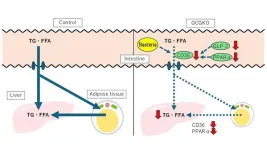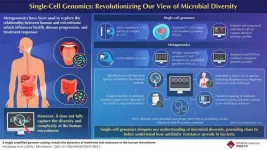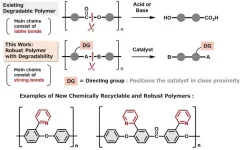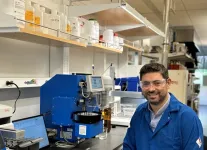The accumulation of fats in the liver is driven by high-fat diets and obesity, and is becoming an increasingly prevalent global health concern. Characterized by excessive fat accumulation in the liver, this condition poses significant risks for various metabolic disorders. While much of the existing research has focused on fat metabolism within the liver itself, emerging findings emphasize the critical role of the gut in this complex process. Proglucagon-derived peptides (PGDPs), including glucagon, GLP-1, and GLP-2, are known to be the key hormones that regulate lipid metabolism in the liver. Derived from the same precursor—proglucagon, previous studies have shown that both GLP-1 and GLP-2 are involved in lipid accumulation indirectly in the liver. However, their specific contributions to liver fat accumulation are not yet fully understood.
A new study, led by Associate Professor Yusuke Seino from Fujita Health University and published in Nutrients on 14 July, 2024, explores how PGDPs impact fat absorption and liver fat buildup. The team of researchers included lead researchers Mr. Koki Nishida, Mr. Atsushi Suzuki, and Mr. Yoshiki Hirooka from Fujita Health University, along with Mr. Yoshikata Hayashi from Nagoya University. Using genetically modified mice lacking PGDPs (GCGKO mice), the study investigates the response of mice to a high-fat diet (HFD) for seven days and sheds light on a potential new strategy for preventing fatty liver.
“When we subjected both GCGKO mice and control mice to an HFD for one week, the GCGKO mice exhibited a significantly lower increase in hepatic free fatty acid (FFA) and triglyceride levels, along with reduced adipose tissue weight,” highlighted Dr. Seino. These effects were attributed to a decrease in lipid absorption via the CD36 pathway in the intestinal tract, despite a reduced fat-burning capacity (β-oxidation) in the liver.
Additionally, the study found lower expression levels of genes involved in FFA oxidation in HFD-fed GCGKO mice. Particularly, Pparα (peroxisome proliferator receptor alpha) and Cd36 (cluster of differentiation 36) mRNA levels were reduced in the duodenum, correlating with a decrease in fat uptake in the intestines and increased fecal cholesterol content. This suggests that the absence of PGDPs prevents diet-induced fatty liver by lowering intestinal fat absorption.
Notably, the researchers found that despite lower fat-burning activity in the liver, the primary factor preventing fat accumulation was reduced fat absorption from the intestines. HFD-fed GCGKO mice also showed lower plasma triglyceride levels during the oral fat tolerance test (OFTT), further confirming reduced lipid absorption.
Moreover, the study underscores the intricate relationship between diet, hormonal responses, and intestinal microbiota. The HFD-fed GCGKO mice demonstrated notable shifts in gut bacteria, with an increase in Parabacteroides and a decrease in Lactobacillus, both linked to obesity resistance. These changes further point to the possibility of dietary and hormonal interventions to enhance gut health and metabolic function.
Adding further, Dr. Seino notes, “If we can examine in more detail how PGDPs specifically regulate lipid absorption in the gut, we hope to clarify the relationship between diet, hormones, and intestinal bacteria sufficiently to recommend a diet that is less conducive to obesity and fatty liver disease.”
Talking about the long-term implications of their research, Dr. Seino says, “In the future, oral dual antagonists of GLP-2 and glucagon could emerge as potential therapies for obesity and fatty liver, especially given their roles in insulin sensitivity and lipid metabolism.”
In summary, these findings pave the way for the development of targeted therapies aimed at combating this growing health problem, potentially improving outcomes for millions of people affected by fatty liver disease worldwide.
***
Reference
DOI: 10.3390/nu16142270
About Fujita Health University
Fujita Health University is a private university situated in Toyoake, Aichi, Japan. It was founded in 1964 and houses one of the largest teaching university hospitals in Japan in terms of the number of beds. With over 900 faculty members, the university is committed to providing various academic opportunities to students internationally. Fujita Health University has been ranked eighth among all universities and second among all private universities in Japan in the 2020 Times Higher Education (THE) World University Rankings. THE University Impact Rankings 2019 visualized university initiatives for sustainable development goals (SDGs). For the “good health and well-being” SDG, Fujita Health University was ranked second among all universities and number one among private universities in Japan. The university became the first Japanese university to host the "THE Asia Universities Summit" in June 2021. The university’s founding philosophy is “Our creativity for the people (DOKUSOU-ICHIRI),” which reflects the belief that, as with the university’s alumni and alumnae, current students also unlock their future by leveraging their creativity.
Website: https://www.fujita-hu.ac.jp/en/index.html
About Associate Professor Yusuke Seino from Fujita Health University
Dr. Yusuke Seino is an Associate Professor in the Departments of Endocrinology, Diabetes, and Metabolism at Fujita Health University School of Medicine in Toyoake, Japan. A respected researcher, he has authored over 68 publications, accumulating 410 citations in the field. He serves as the corresponding author for this paper. With a strong focus on advancing understanding in these critical areas, Dr. Seino is recognized for his significant contributions to endocrinology and metabolic research.
Funding information
This study was supported by Grants-in-Aid for Scientific Research from the Japan Society for the Promotion of Science to Y.S. (Yusuke Seino) (21K11608 and 24K14638) and Y.H. (Yoshitaka Hayashi) (23K24765), grants from the Japan Association for Diabetes Education and Care (to Y.S. (Yusuke Seino) and S.U. (Shinji Ueno)), and a research grant from Fujita Health University.
END









